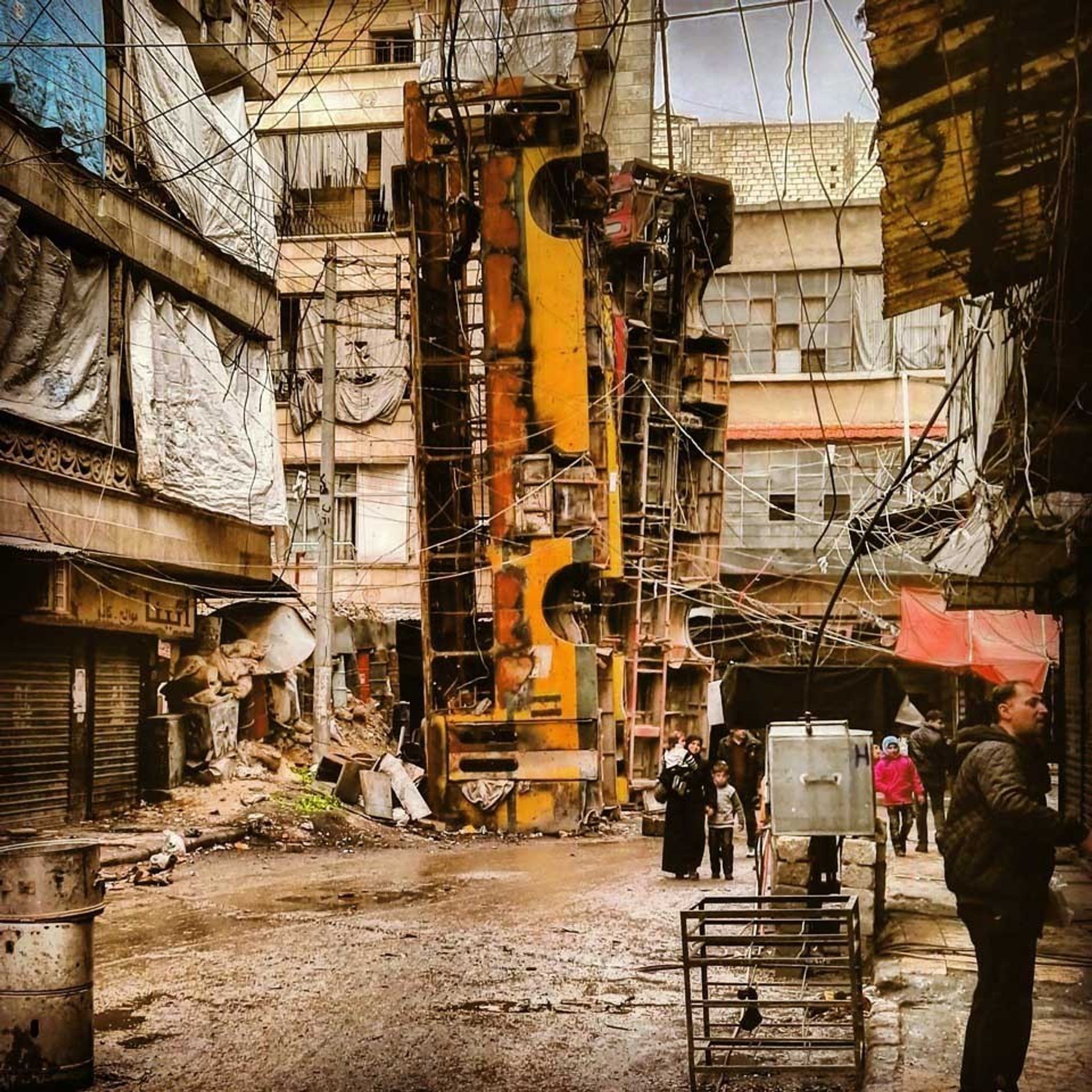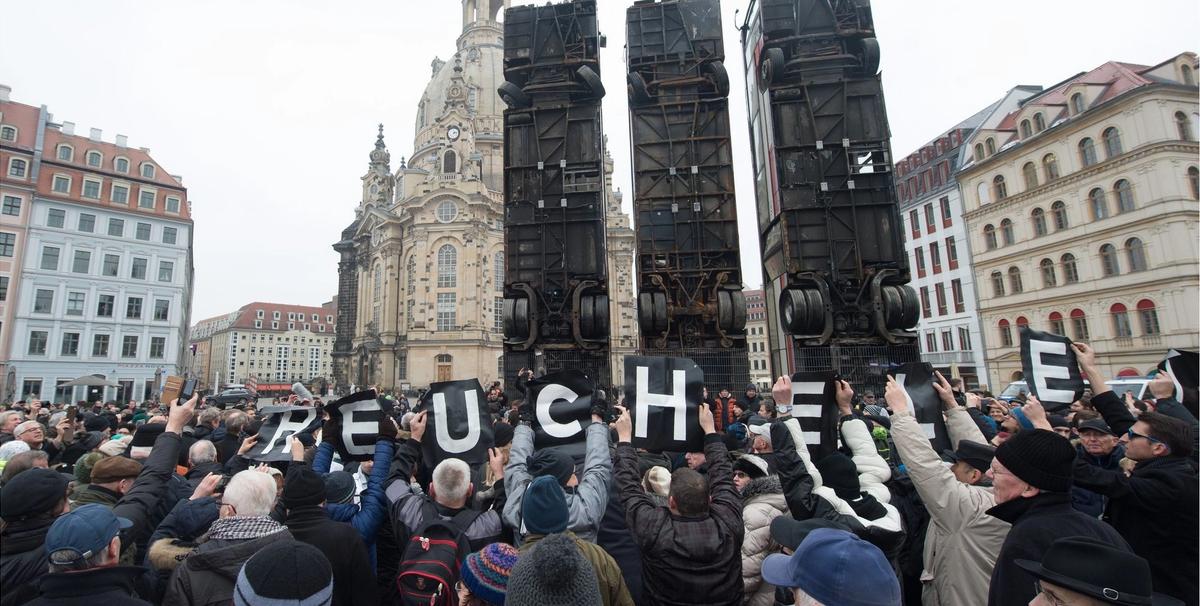Three wrecked buses turned vertically in front of Dresden’s Frauenkirche, an installation intended as a “Monument” to the people of Aleppo by the Syrian-German artist Manaf Halbouni, drew protests from supporters of right-wing populist movements at its opening yesterday (7 February).
“Monument” refers to a photograph taken in Aleppo in 2015, showing buses turned on their heads and fastened together with wire to barricade a street and protect the residents from the fighting. It is designed to reflect the suffering and loss of war but also hopes for peace and reconstruction, symbolised by the Frauenkirche, which was destroyed in the Second World War and rebuilt after German reunification.
The choice of location has angered some in Dresden, which is home to the right-wing anti-immigration movement Pegida. Dresden commemorates the 72nd anniversary of its own destruction on 13 February when the sculpture will still be in place.
Around 150 protesters gathered in Dresden’s Neumarkt to disrupt the opening with chants of “traitors” and “get lost,” says Christiane Mennicke-Schwarz, the artistic director of the Dresden Kunsthaus, which is overseeing the work. Dresden's mayor Dirk Hilbert’s speech was greeted with cries of “Hilbert must go.” Police officers were at the scene, she says.
“We have hit a nerve with this project—an important nerve,” Mennicke-Schwarz says. “It shows how important it is to focus on this subject. We have to be open to the suffering of others.”
Supporters of Pegida and the populist right-wing Alternative for Germany party voiced outrage on social media before the opening—some calling for the installation to be burned and threatening violence against Hilbert, according to the regional broadcaster MDR.



